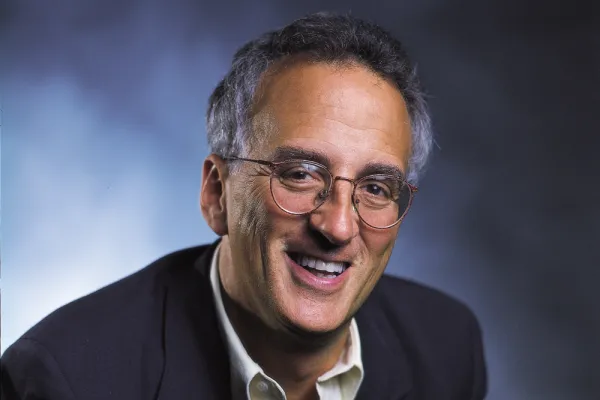Passing on the Torch: Boston and the Olympics
Research & Inquiry

Published May 17, 2017
“It’s not easy for David to get the best of Goliath,” says economics professor Andrew Zimbalist.
But in 2013 and 2014 a group of under-resourced Bostonians did just that—taking on elected officials and major Boston companies to defeat the city’s bid to host the 2024 Olympics, despite being outspent 1,500 to 1.
The story is detailed in a new book, No Boston Olympics: How and Why Smart Cities Are Passing on the Torch. Co-authored by NBO leader Chris Dempsey and Zimbalist, the college’s Robert A. Woods Professor of Economics, the book documents the pivotal moments of the No Boston Olympics movement—and outlines what that might mean for future Olympics. (Zimbalist and Demspey will read from their book at 7 p.m. Friday, May 19, at Broadside Books in Northampton.)
Here’s what Zimbalist had to say about Boston, popular movements and the need for Olympic change.
Was what happened in Boston unique? Had anything like No Boston Olympics happened before?
There have been previous movements to thwart Olympic hosting. In Denver, for example, after the city was awarded the rights to host the 1976 Winter Olympics, a public referendum forced a cancellation, and the International Olympic Committee had to scramble to move the games to Innsbruck.
That said, Boston was different.
Why did the No Boston Olympics movement work?
At one level, Bostonians have a certain pride in their historic role as progenitors of democracy in the United States. That leads to a certain confidence—a feeling that people know about Boston. Olympic organizers always promise cities that “The Olympics are going to put you on the map.” But that line didn’t work in Boston.
There were logistical challenges, too. Boston is a very condensed city—a very densely populated city. You need a lot of land to put on an Olympics, and it’s hard to find that land in Boston. The organizers initially wanted to create a walkable Olympics, but in Boston that wasn’t possible. And plans for new developments were risky and expensive, requiring subsidies many times higher than normal.
The bottom line is that in Boston, the promoters couldn’t hoodwink the population.
What lessons can we take from the No Boston Olympics movement?
What happened in Boston demonstrates that an organized group of citizens can have an impact in a democratic society.
It also shows that the way the Olympics are structured needs to be changed. After Boston, Hamburg, Rome, Budapest and Toronto all rebuffed attempts to be an Olympic host. Cities are beginning to understand that the cost of hosting almost always outweighs the benefit.
How should the Olympics change?
The Olympics are supposed to be an athletics event, not a construction event. So I tend to favor the view that the Olympics should have a permanent location. That approach doesn’t require money to build and maintain an Olympic village, media facilities, transportation infrastructure and new parking areas every few years. Very few cities can use all of these venues effectively after the Olympics—they just don’t have the sporting culture to support it.
If you can identify a city that already has these facilities, why not just ask that city to host? I believe that city is Los Angeles—but what does L.A. gain by hosting? It should be up to the citizens of Los Angeles to decide.
Do you think the Olympics will change?
I hope so. I would look forward to that.
Change isn’t easy—even when there are a lot of forces pushing for it. But as long as there are popular movements and as long as cities like Boston say ‘no’ to the Olympics, the International Olympic Committee will have to change. And that would be for the best.